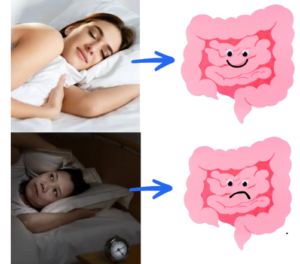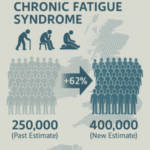Discovering the Vital Connection Between Quality Sleep and Digestive Health
Sleep serves a crucial role beyond mere rest; it is an essential process that profoundly impacts our digestion. Although the link may not be immediately obvious, the intricate relationship between sleep and digestive health encompasses a myriad of physiological functions that work in concert. The body’s circadian rhythm, often referred to as the internal clock, synchronises both sleep cycles and digestive processes. This alignment is why individuals frequently experience hunger at similar times each day, showcasing the body’s remarkable ability to align with natural biological rhythms.
Understanding the Importance of Restorative Sleep for Enhanced Digestive Function 
Sleep is fundamental for the body’s ability to heal, rejuvenate, and restore its various functions. The deeper stages of sleep are particularly critical for these restorative activities. During these profound phases, the organs, tissues, and cells constituting the digestive system not only relax but also engage in vital repair processes. The body prioritises cellular repair and growth during deep sleep, specifically focusing on regenerating the cells that line the digestive tract. These cells endure constant wear and tear due to exposure to food particles and digestive enzymes, making their regeneration essential for maintaining the integrity of the gastrointestinal lining and thereby enhancing digestion.
Deep sleep also plays a pivotal role in strengthening the immune system, which is crucial for the digestive system as it contains specialised immune cells that are activated by the beneficial bacteria residing in the gut. These immune cells are vital for protecting the gut and the entire digestive system against harmful microorganisms, ensuring a balanced microbiome within the gut. This balance is essential for optimal digestion and overall health.
Moreover, the organs within the digestive system are instrumental in detoxification, aiding in the removal of waste and harmful substances from the body. Deep sleep enhances this detoxification process by optimising the operational efficiency of the liver and kidneys, enabling these organs to function at their best. This synergistic relationship between sleep and detoxification plays a significant role in promoting comprehensive digestive health and overall wellness.
Examining the Link Between Gut Motility and Sleep Patterns
A crucial aspect of digestion is the effective movement of food and waste through the digestive tract, a process referred to as gut motility. This process undergoes significant changes during sleep. Both during deep and light sleep, the rate of gut motility is markedly diminished. This reduction is a necessary adjustment, allowing the digestive system to conserve energy, which is redirected towards the repair of digestive tissues. This energy conservation is crucial for optimising digestive function during waking hours, enhancing both nutrient absorption and waste elimination.
The migrating motor complex represents a series of contractions that occur during fasting periods, including during sleep. This cycle is essential for gut motility, as it effectively clears away food particles and residual matter that may remain in the digestive system. This natural cleansing mechanism of the digestive tract reduces the risk of bacterial overgrowth, fostering a healthy gut environment. Notably, the migrating motor complex is most actively engaged during the night when individuals are fasting and asleep, underscoring the critical role of sleep in protecting the health of the digestive system.
As morning approaches, gut motility gradually increases, preparing the digestive system to efficiently process and digest food. This rise in motility can also trigger the first bowel movement of the day, illustrating the finely tuned connection between sleep and gut motility. Understanding this relationship is vital for optimising digestive health and enhancing overall well-being.
Investigating the Hormonal Interactions Affecting Sleep and Digestion
Ghrelin, commonly known as the hunger hormone, plays a significant role in stimulating appetite. In contrast, leptin communicates to the brain that the stomach is full, helping prevent overeating. Together, these hormones are integral to appetite regulation, yet their functions can be negatively impacted by insufficient sleep.
Even a single night of inadequate sleep can lead to increased levels of ghrelin, which may heighten appetite and trigger cravings for carbohydrates. This phenomenon is often described as experiencing feelings of being ‘hangry’. Compounding this issue, levels of leptin can drop following a night of insufficient sleep, disrupting the signalling that indicates fullness. This creates a challenging scenario where individuals may overeat and make poor food choices while struggling to heed their body’s signals to cease eating. While occasional poor sleep may not lead to severe repercussions, chronic insomnia can result in significant digestive complications, including gut inflammation, liver disorders, gastroesophageal reflux disease, inflammatory bowel disease, and even colorectal cancer, all while contributing to weight gain.
The Impact of Sleep Disruption on Digestive Health
Disruptions to sleep can lead to a multitude of digestive issues. Factors such as shift work, particularly night shifts, and experiencing jet lag can significantly disrupt sleep patterns and upset the body’s internal clock. Additionally, late-night eating or irregular meal timings can adversely affect the quality of sleep. The circadian rhythm, which governs sleep, is closely tied to natural sunlight, which is critical for maintaining a healthy sleep-wake cycle.
Regrettably, in our modern, technology-driven world, many individuals find themselves spending the majority of their daytime indoors, reducing their exposure to natural light. This shift has resulted in increased exposure to blue light emitted by devices such as laptops, televisions, and smartphones, which further disrupts the sleep cycle and sleep patterns, especially when this exposure occurs shortly before bedtime.
The cumulative effects of these factors can lead to serious digestive issues, including diarrhoea, ulcers, inflammatory bowel disease, or disruption of the delicate balance between beneficial and pathogenic bacteria in the gut. This imbalance can also damage the gut lining, exacerbating concerns regarding digestive health.
Enhancing Microbiome Health Through Sufficient Sleep
The microbiome encompasses the trillions of microorganisms inhabiting the gut, predominantly consisting of beneficial bacteria known as probiotics, as well as viruses, fungi, and potentially harmful bacteria. These microbes are vital not only for overall health but also for digestive health. They enhance immune responses and assist in digestion, facilitating the production of certain vitamins, enzymes, hormones, and amino acids. Recent studies have indicated a significant association between the microbiome and sleep, suggesting that disrupted sleep or chronic insomnia can negatively impact the balance of these microorganisms, ultimately affecting digestive health and overall well-being.
Exploring the Intricate Dynamics Between Microbiome Health and Sleep Quality
The interplay between sleep and microbiome health is complex and multifaceted. Insufficient sleep can detrimentally affect microbiome health, while an imbalanced microbiome can also impact sleep quality. To grasp this intricate relationship, one study revealed a correlation between a higher abundance of certain bacterial types in the gut and faster sleep onset, alongside reduced night awakenings. Although this article does not explore every detail, the key takeaway is that nurturing a diverse and abundant population of beneficial bacteria in the gut is paramount for achieving optimal sleep, effective digestion, and maintaining overall health.
Assessing the Relationship Between Stress, Sleep, and Digestive Wellness
A prevalent result of stress and anxiety is disrupted sleep. Conversely, these mental health challenges can negatively influence the physical health and functionality of the digestive system. Such disruptions can lead to altered gut motility and contribute to conditions such as indigestion, ulcers, and irritable bowel syndrome. A critical component of this dynamic is the impact of the so-called stress hormone, cortisol.
Understanding the Impact of Cortisol on Digestive Processes
When cortisol levels rise, the body responds by entering a fight-or-flight state. This physiological reaction causes blood flow to be redirected towards critical areas such as the heart, brain, lungs, and muscles, while simultaneously diverting it away from the digestive system. This response prepares individuals to either confront danger or flee, a reaction that was vital for survival in ancient times.
In modern society, however, stressors are often less life-threatening, such as financial worries, work pressures, or inadequate sleep. While the short-term redirection of blood flow can be beneficial in acute situations, chronic stress can adversely affect the digestive system, particularly concerning gut motility. This can result in symptoms like constipation, diarrhoea, indigestion, gas, and bloating. Therefore, implementing effective stress management techniques is essential for supporting both gut health and achieving quality sleep.
Ensuring adequate sleep is vital for maintaining a healthy digestive system, as the connection between sleep and digestion is inherently intertwined. Prioritising good sleep hygiene practices is critical for achieving restorative sleep. This encompasses minimising exposure to blue light from electronic devices, maintaining a consistent sleep schedule, creating a cool, dark sleep environment, avoiding food intake within two hours prior to bedtime, and ensuring ample exposure to natural light throughout the day, especially in the morning.
References
Understanding Digestive Health and Circadian Rhythms
Exploring Sleep Dysfunction and Digestive Conditions
Examining the Link Between the Gut Microbiome and Sleep
Investigating Stress and Its Effects on the Digestive System
The Article: How Sleep Affects Your Digestive System appeared first on https://janestevensnutrition.com
The Article: Sleep’s Impact on Your Digestive System Explained appeared first on https://janestevens.net
The Article Sleep’s Impact on Digestive Health Explained Was Found On https://limitsofstrategy.com

